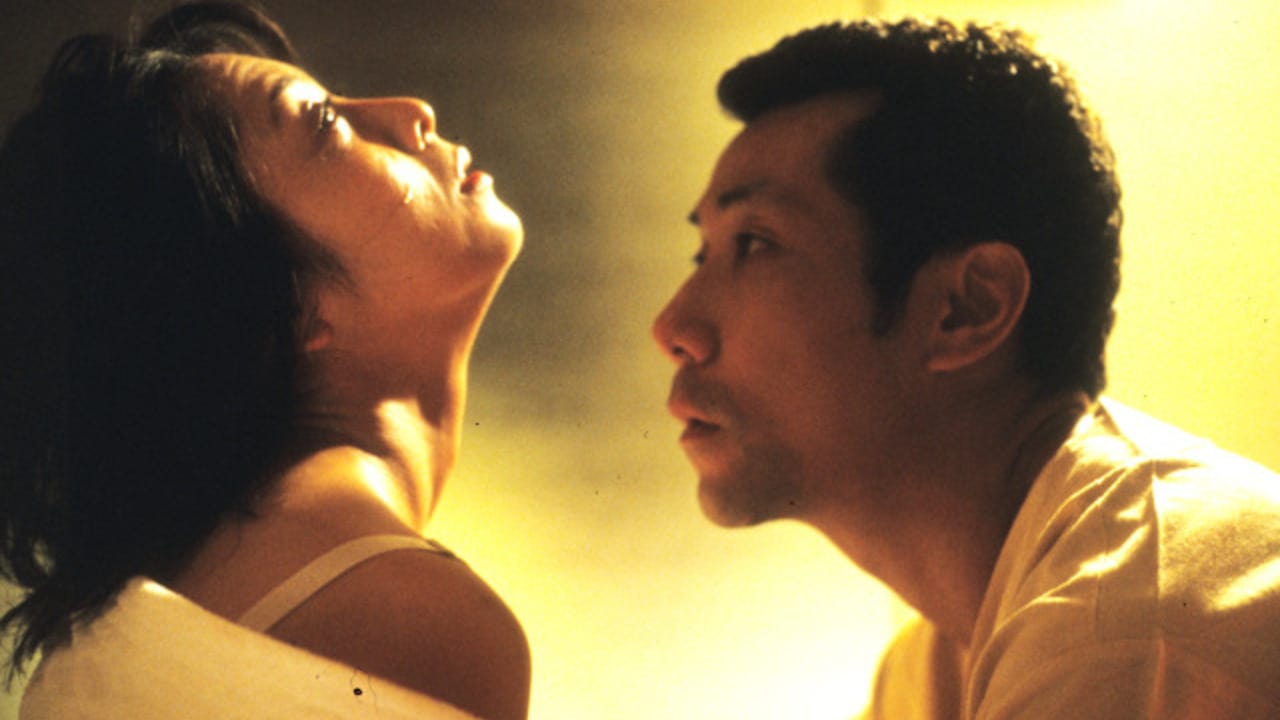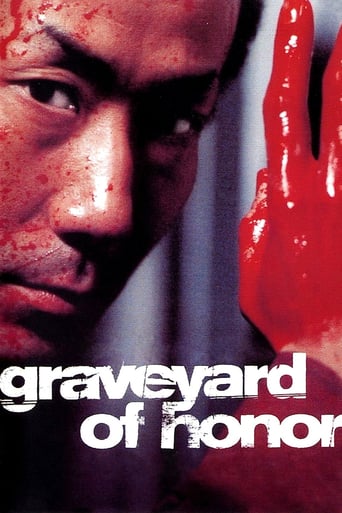

This flick isn't awful, but it's not really great either. I'm unclear as to why exactly it was (re)made. It's too violent to be believable, there are too many guns, there are waaay too many deaths to be even close to making me suspend my disbelief, but the violence is handled so realistically as to not make much sense.If this movie went over the top into a demented fever dream, cool, but it doesn't. The presentation is so nuts and bolts and kitchen sink the constant ultra violence just doesn't seem at all plausible. It's one of those movies where you wonder where the police are, when a guy strung out on heroin shoots up his apartment in the middle of the day with at least eight handguns (in Japan!). Apparently nobody ever calls the (ever-present and ever-watching) police in Japan. It's just not believable. Sorry.The tiresome unpleasantness of the main character is also past belief. I suspect any effective crime organization would have taken him down or had him incarcerated at the first stray bullet. Dumb. I'm not saying crazy Yakuza thrillers aren't good, I'm saying this one isn't. Not worth it.
... View MoreTakashi Miike has a knack at Yakuza thrillers. Some might not be very good, some might be some odd sorts of deranged masterpieces. But with Graveyard of Honor, I can only imagine how fantastic the original Kinji Fukasaku film from the 70s was if this might possibly be Miike's best "serious" Yakuza movie. This is to say that Miike turns down a somewhat typical level of madcap gore and humor for an approach that is kind of staggering, as though Cassavetes had some input on the screenplay (or Abel Ferrara ala Bad Lieutenant for that matter). It's a solid piece of drama of a man, Rikuo Ishimatsu (in a performance that, within the range, is one of a lifetime from Gorô Kishitani ala young Mifune), who unwittingly becomes apart of a crime family after saving its boss while working as a dishwasher. He serves some time for attempting to kill another gangster, he gets out, the years pass and he gets bitter, and in a fit of panic he bites the hand that feeds him - he shoots his own boss.From here on it's a path right to hell that Ishimatsu takes. Already one has seen him as a character with some demons he has trouble quelling. He's tough, maybe too tough, and doesn't have much of a sense of humor (which includes around his woman, a timid creature who soon gets into the dank mess that Ishimatsu puts himself into). He also turns into a full-fledged junkie, and burns more bridges than one could ever fathom. What Miike crafts here is something that might not be his most inventive work, but it displays him as someone who has the range to plunge into real bloodshed and tragedy. It's almost the reversal of the cartoonish mayhem of Ichi the Killer - where that you almost were given permission to chuckle at the carnage and excess of violence, in Graveyard of Honor it's grim, ugly, the blood flowing hard and with bodies writhing in total agony. It's a rare instance for the director to present things about as realistic as he'll get, in edgy hand-held and compositions.But there is some style that Miike puts, appropriately and with an creative sensibility, on the material. The music crooning on and off is like that of New York jazz from the late 50s and early 60s, and I'm almost reminded of some lucid nightmare of a beatnik on junk ala William S. Burroughs and pulp fiction. As the downward spiral continues for this character, even if it starts to seem unlikely that it would go this far (the escape from prison alone, intense for the self-inflicted horror done to himself, is just enough to swallow), we go right down with this character in his oblivion. It's hard to turn away, and there are moments that are gruesome not so much for what's shown, which can be a lot, but the emotional impact. Not to sound pretentious, but I'm almost reminded of some damned Shakespearan king or something, only here it's a sensibility of total unadulterated nihilism that propels Ishimatsu to his horror of an end.On the surface, it doesn't feel a whole lot different from other Miike Yakuza fare. Yet it's a little maturer, a little more tightly crafted and developed with the characters, and it has the mood of a filmmaker working outside of his reputation as a showman or provocateur. It's a real movie, one of the best in the Yakuza realm.
... View MoreTakeshi Miike is one of my favorite filmmakers, almost for no better reason than that he's the only filmmaker I've ever seen that can set off my gag reflex. Although he shows versatility as a director with dramas like Sabu and children friendly fare like "Zebraman", he is much more well known as the hyper-violent, hyper-gory, and hyper-kinetic director of "Ichi the Killer". "Graveyard of Honor" is another one of his extreme movies. It's not as fast-paced, or even as weird, as "Ichi", but boy, does it deliver.The basic plot is that a dishwasher ends up saving the life of a Yakuza boss when he knocks out an assassin that is shooting up his restaurant. The Yakuza boss thanks him by making him his right-hand man, but the dishwasher turns out to be pretty much a sociopath, showing no fear, regret, or capability for patience, thus resulting in a violent film full of miscommunication and misunderstandings. The best part is that none of the other characters really seem that willing to take him down, so his blunt approach to killing whoever he feels goes pretty much unchecked.However, the movie is pretty slight on the plot. Really, it's more like a continuing cycle of prison-violence-heroin, prison-violence-heroin. If that description gives some pause, especially considering that this movie is over two hours long, have no fear--it's the most interesting cycle of prison-violence-heroin ever filmed, because one of Miike's primary strengths lies in his use of hyperbole. When a character jumps to his death, he doesn't just splatter; a wave of blood washes over a wall. The fascination of the character himself is matched by the deranged trust that most of the other Yakuza place in him. We're almost as attached to him as his wife, who, it seems, he purposefully got addicted to heroin so that she would depend on him.It's also, like many of Miike's works, darkly comedic in a very sick way. Just don't expect to be laughing all that often, as it's more likely you'll be running to the bathroom trying not to vomit. It also sticks with you for a while, unless you're actually as desensitized as the main character is. If that's the case, I recommend finding a nice asylum to live in for a while.--PolarisDiB
... View MoreA slow burning Miike movie interspersed with bouts of extreme and graphic violence that is toe-curling real. I found the story almost Shakespearian in its handling of the dishwashers "journey to hell" and the strong themes of honour and loyalty that run throughout. I find Miikes misogynistic treatment of women disturbing, but interesting. He seems to relish every kick and slap.. but then he relishes the violence wreaked on everyone. It just jars (my Western sensibility ?)so much to see Ishimatsu brutalise his "wife".Look out for Miike as the assassin who Ishimatsu knocks out and thereby starts his self-destructing rampage ... and what a scene ! As good as the intro of "Dead or Alive"I may try to find Kinji Fukasaku's 1975 original which was equally controversial on its release....All I can say is move over Coppola and Scorsese.. here comes Miike..
... View More